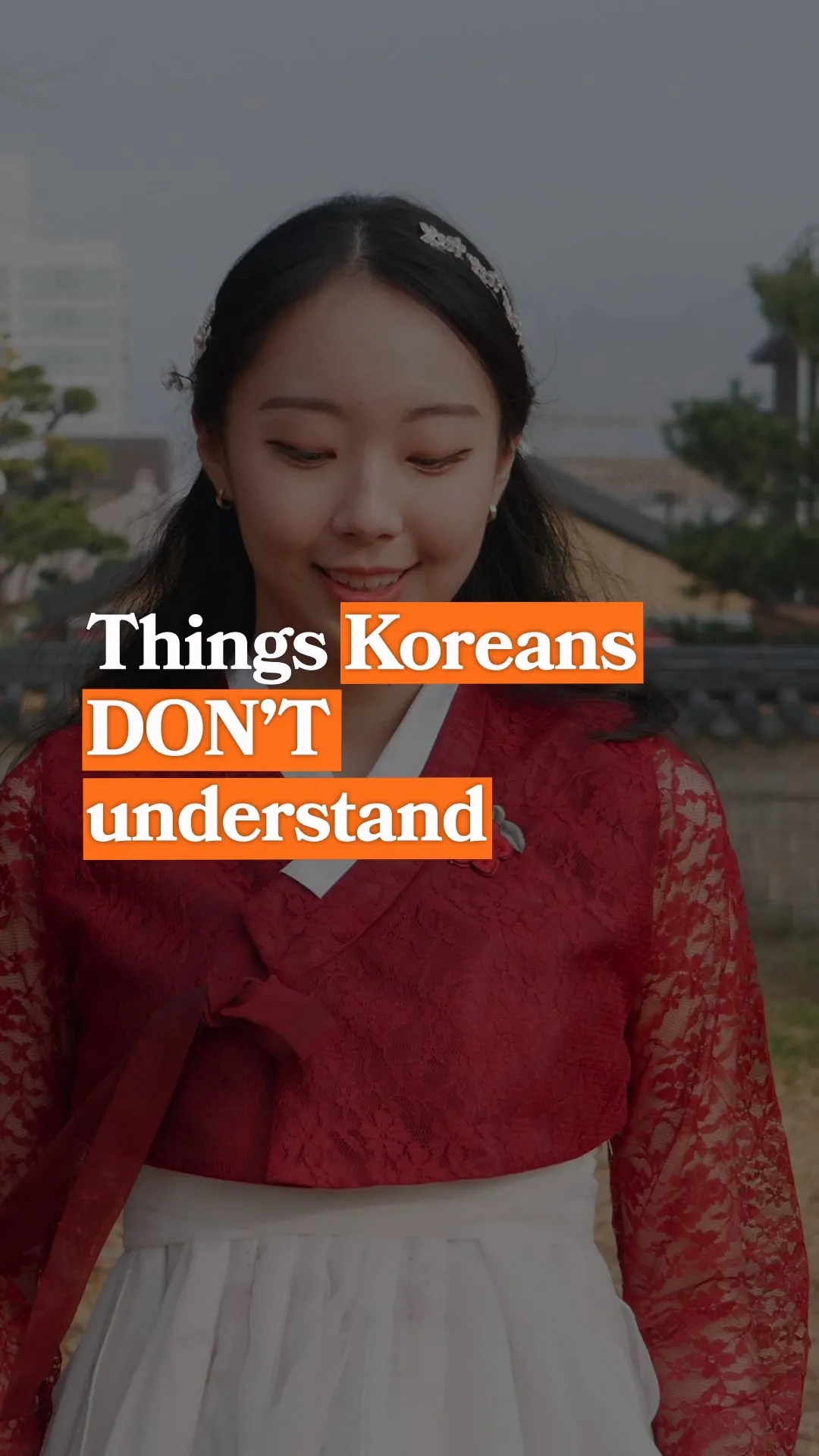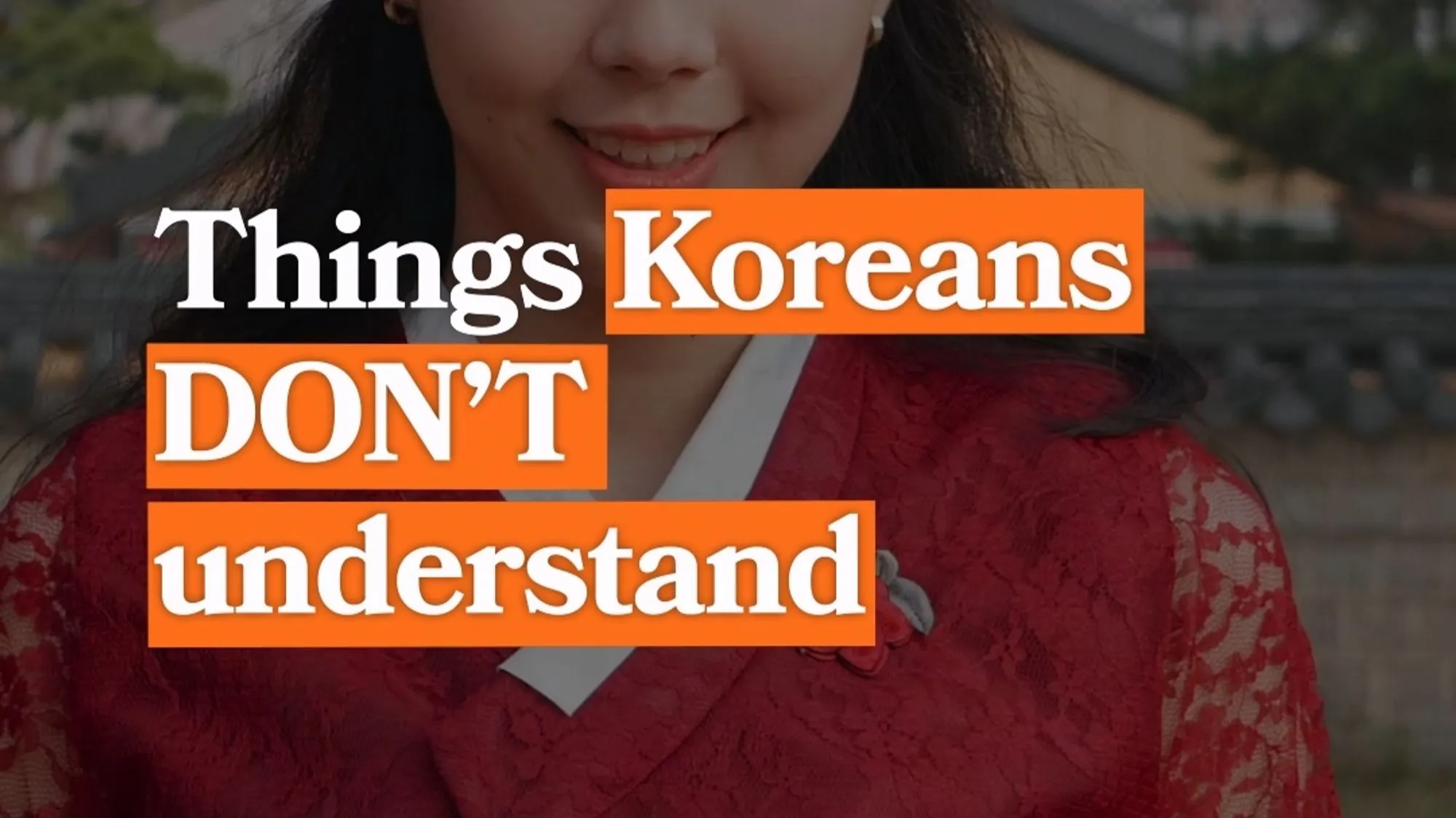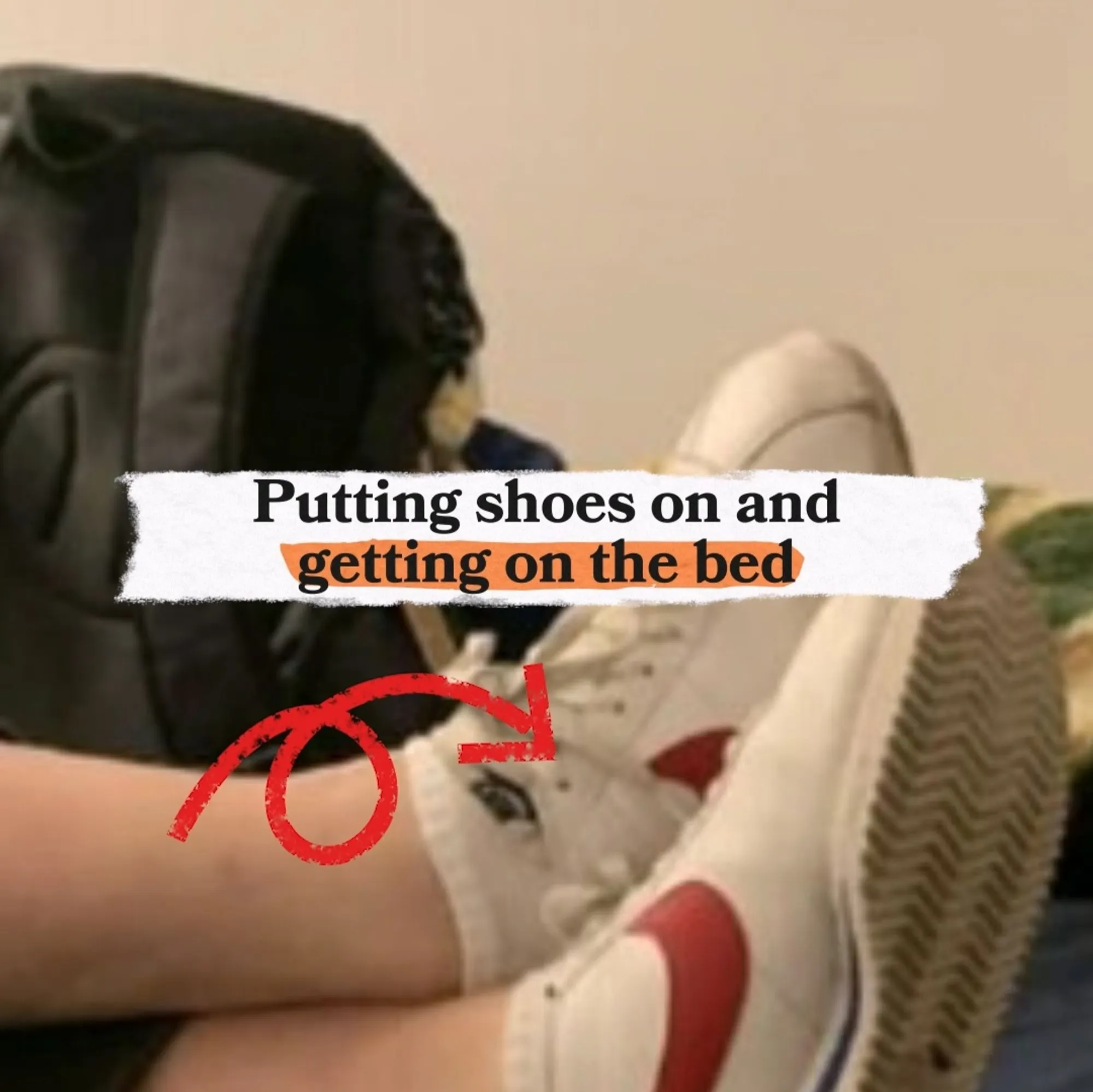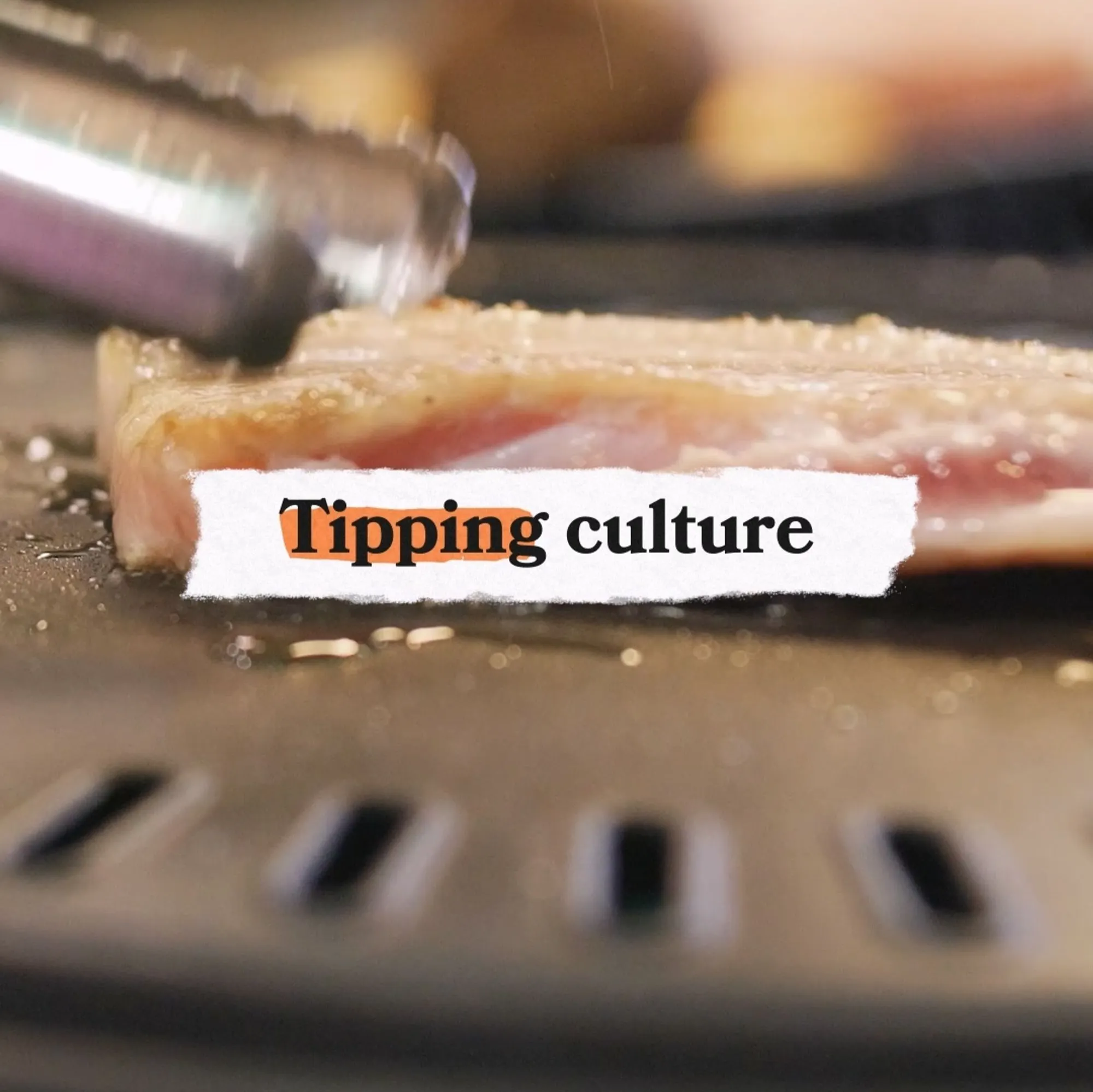Things Koreans DON’T Understand
What Koreans think when they see foreigners.
People around the world have these questions about Koreans.
•
Why sit on the floor even there is a sofa?
•
Why do they clap or hit others when they laugh?
•
Why do people leave things carelessly everywhere and why don't they steal from each other?
•
But why only steal a bicycle?
Floor Seating
Why sit on the floor even when there's a sofa?
Koreans often prefer sitting on the floor, even if there is a sofa available.
This practice is deeply rooted in their traditional lifestyle and cultural values.
Expressive Reactions
Why clap or hit others when laughing?
It’s common in Korea for people to clap or lightly hit someone nearby when they laugh. This behavior is a natural expression of joy and excitement, creating a shared moment of happiness.
Trust in Community
Why do people leave things carelessly everywhere and not steal from each other?
Korean society values trust and community. It’s common to see personal belongings left unattended because there is a strong cultural norm against stealing.
But why only steal a bicycle?
However, bicycles are an exception, possibly due to their high utility and ease of resale.
Shoes on the Bed
Putting shoes on and getting on the bed
Koreans take off their shoes when entering a room. Beds and sofas are seen as places for rest, requiring cleanliness. The idea of climbing on these furniture pieces with dirty shoes is unimaginable.
Small Talk
Too much small talk
In Korea, small talk is reserved for close friends. In contrast, foreign cultures often engage in small talk even with strangers, like waiters asking about your day or the weather.
Tipping Culture
Tipping culture
In Korea, the cost of food typically includes the service fee. Paying additional taxes and then tipping the waiter is a foreign concept that many Koreans find hard to understand.
Understanding these cultural differences enhances our appreciation for diverse perspectives. From the way we relax at home to how we interact with strangers, these habits shape our daily lives. By exploring these contrasts, we can foster mutual respect and open-mindedness.
Keywords
Cultural differences, Korean customs, floor seating, expressive reactions, community trust, clean spaces, small talk, tipping culture, foreign habits, Korean perspectives









